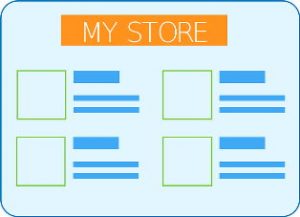If you are planning to have your own website, then you already know what a website is. It is important to understand the different types of websites used for various purposes. Websites range from simple blog to more complex e-commerce enabled websites. The purpose and features of such websites vary immensely.

Categories of websites according to purpose:
- Informative websites
- Educational websites
- Business websites
Informative websites are largely meant for sharing some insights about a product or service. It provides information to the customers about the availability of a specific product or service. What all features it incorporates and where to find it. It makes the online presence more apparent to customers.
Educational websites are used for educating the customers about the use and features of the products or services. They teach you how to effectively put the products into play. These could be free or paid courses available for the user to learn the use of a specific product. For example: learning software, a programming language, an art, a musical instrument and the list goes on. 
Business websites are basically meant for trading. They help in selling of products and services in a cost effective manner by providing a mass reach. There are different types of business sites, largely known as e-commerce or m-commerce. They can be further categorised as:
- B2B: Business to business
- B2C: Business to customer
- C2C: Customer to customer
There are websites meant for trading among various business entities. The end product of one business can be the raw or basic material for another business. Selling of such interim products or services to another business entity is known as B2B or Business to Business commerce. For example: A company that provide software for online conferencing and webinars. A company that conducts webinar would be the customer of this software. For example: zoom.us, wiziq.com

There are other websites which are meant for trading of goods and services to the end user, i.e. they deal with the finished products. Customers can directly purchase from the traders. For example: Online shopping carts like Amazon.com, Flipkart.com, Alibaba.com.
Yet another type of trading happens between the customer and another customer. There is no business entity involved in such a trade. There are online market places where the customer can sell their products and services to another customer. For example: A customer owns a washing machine which she wishes to sell. She can directly approach another customer over this market place by placing an advertisement or listing the product and its expected sale price. She can also respond to an advertisement uploaded by another customer for purchase of a washing machine. In any of the scenarios, the customer is dealing with the customer directly, by paying a commission to the online market place owner either for selling or purchasing the product. For example: olx.in, click.in
There are two categories of websites according to user interaction:
Static Website
A website on which the user does not interact with the content is a static website. It is basically used for sharing information or education the user. The user can only read, view or listen to the content on this website.
Dynamic Website
A website is one in which the user interacts with the content on the website is a dynamic website. The website thus responds to the user requirements.
No matter what type of website you want to have, whether personal or for business, it will fall under either of the two categories, static or dynamic. Ecommerce website will always be dynamic since it requires user interaction.
What website should I have?
For a beginner who wants to get online, this is the first question that they would ask. Depending on the purpose of creating a website, you can choose from the following categories:
You need to decide the purpose of the website.
Educational
An educational website can be static or dynamic. In a static educational website you would have web pages of content to be shared with your audience. This shall not be interactive form of sharing. In a dynamic educational website, you would involve the learner through activities and resources. This will give them a real learning experience. There are various tools free and premium available for making the learning experience more interactive.
Community Forum
Community is meant for collaboration. It could be collaborative learning, working, experiencing. When a group of people come together with their set of knowledge and experience, it enriches the community. They are all likeminded people looking through a similar mirror. There are various community platforms where professionals come together to help each other free of cost. Then there are platforms where people seeking advice can approach professionals for guidance and they work together. There are yet other types of communities where people collaborate together to experience life. Travel and excursion communities help bring such people together.

Ecommerce
Business websites can also be static or dynamic. A static business website would be informative of the products and services a business deals in. It would only work as the marketing platform for the offline business to get a wider customer reach. A dynamic business website on the other hand would conduct business online. Such a website is known as Ecommerce website. Here, the trading of products is conducted through an online resource.
Personal
A personal website would be a place where the user would share their story, thoughts or work. This can be in the form of a blog type website, where the user has a custom domain name and is self hosted and maintained. Whatever be the purpose of this website, it will be your own intellectual property and you would own all the rights to it.
Blog
A blog is a readily available platform for hosting your content. You do not have the ownership of the platform but you use it for hosting your own content. It is majorly used as a static website to showcase your story, product or service. You do not have to worry about the technical aspects of hosting a website and maintaining it. You can focus on the content and the work you want to project to your audience.
Social Media
Websites that help people get connected which otherwise would not be efficiently possible. It is a platform for Virtual social engagements. This can be in the form of community building where people share their views and ideas. It could also be used for ecommerce, where you can sell your products and services and charge a fee for the same. It could be a personal space to showcase your work or your story.
News
Online news platforms are mostly passive form of sharing the news. However, there are a few sites which involve the audience in getting news from every nook and corner of the world.  Some have the citizens’ charter to allow transparency. Other websites involve the audience through contests, quizzes, getaways and various other engagements.
Some have the citizens’ charter to allow transparency. Other websites involve the audience through contests, quizzes, getaways and various other engagements.
Thus, a website entirely depends on the purpose and the kind of user interaction. Possibilities of having your online presence are enormous.
